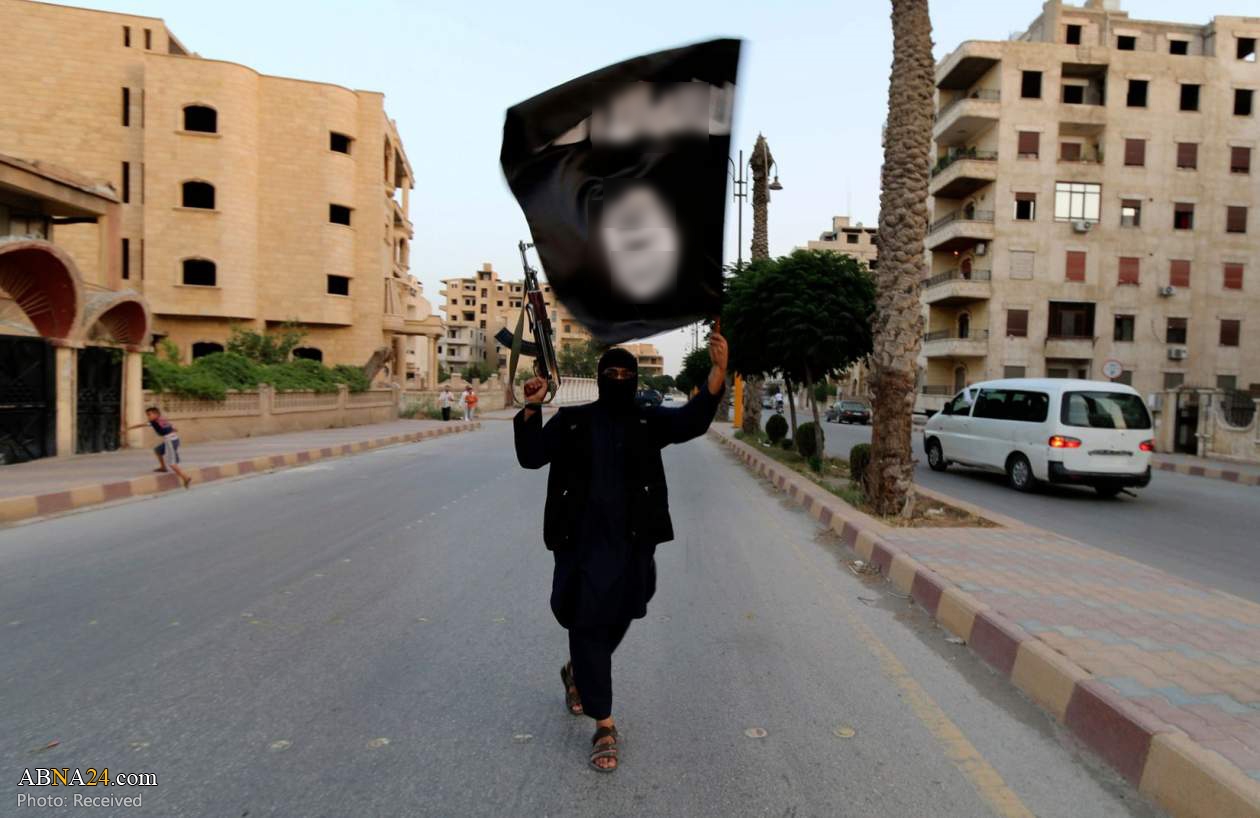AhlulBayt News Agency (ABNA): More than two years after the end of the self-proclaimed ISIS caliphate in Iraq, Iraqi politicians and political factions are engulfed by waves of concerns about Washington's plot to revive the terrorist group in their country. With a look at the US policies and actions, it seems that even after the departure of President Donald Trump from the White House, Washington will keep alive its evil scheme for the restoration of terrorist groups in Iraq.
Sending terrorists from Syria into Iraq: Iraqi army on alert
Since Syrian soil remains the hotbed of ISIS terrorist elements amid the continued presence of the foreign, and especially American, forces, the Iraqi military commanders have strengthened their forces on the borders with Syria as they are aware of the US plot to restore ISIS in their country. Reports suggest that the US is transferring to the Iraq-Syrian borders for future terrorist operations the ISIS prisoners who were kept in Hasakah jails in northeastern Syria.
Al-Mayadeen, a Lebanon-based broadcaster, reported that American helicopters transport ISIS inmates on a daily basis from Qweyran and Al-Sanaa prisons in northeastern Syria to the American bases in Iraq. The prisoners, Syrian field sources said, are gathered in the Qweyran sports complex and then transported by American helicopters to the borderlines. The same sources reported that in the last quarter of 2020, the Americans transferred tens of ISIS inmates from Al-Shadadi and Hasakah prisons to Al-Tanf’s “55-km de-escalation zone” and used them in attacks on the Syrian army’s forces. According to the report, over 100 prisoners were transferred to Iraqi prisons and freed after arming. Their mission was to attack the Syrian army and its allies in Syria and Iraq deserts.
This situation comes as the number of the ISIS fighters in the US-backed Syrian Democratic Forces (SDF) captivity counts at 12,000. Some 3,000 of them are from 54 countries and som 5,000 of them are Iraqi nationals. In Al-Houl camp, 40 kilometers from Hasakah, about 70,000 ISIS terrorists are settled, a majority of whom having Iraqi nationality.
On Sunday, the spokesman to the chief of the Iraqi armed forces Yahya Rasoul said that the security forces are diligently protecting the borders with Syria as the commander-in-chief ordered. Brigadier General Tahsin al-Khafaji, the spokesman for the Joint Operations said that the forces stationed on the Iraqi-Syrian borders block ISIS intrusion into Iraq. “The borderline is secured and the ISIS elements cannot even move close to the Iraqi borders,” he added.
Iraqis sure the US has a role in ISIS revival
Destructive US actions and policies in Iraq, especially after 2013 have pushed the Iraqi public and a large part of the political factions to the conviction that Washington has an undeniable role in bolstering and restoring ISIS. Now the Iraqi politicians have become certain that the US, either under Democrats or Republicans, has been essentially engaged in the creation and restoration of terrorism in Iraq and destabilization of the political order in this Arab country.
Uday al-Shaalan, a member of parliament from the Fatah Coalition, on Monday said that some foreign sides and on top of them the US are pursuing their goals behind the Iraqi political and social developments. “The Americans support chaos and destruction in Iraq for a longer military stay. All know that the US has been a backer of the extremists and terrorist groups. It is the US that has a big role in the importation of the ISIS terrorist group to Iraq,” Al-Shaalan said.
The Sunni Endowment Office, at a ceremony held in Al-Anbar province to mark the anniversary of Iran’s General Qassem Soleimani and Iraq’s Abu Mahdi al-Muhandis, said that al-Muhandis was a Muslim Iraqi that was assassinated by the US. “The Americans killed him because he distanced terrorism from Iraq,” the office held. Actually, the Sunni communities who have felt the sacrifices of the resistant forces in the liberation of the Sunni-majority territories from ISIS are looking at the American actions with concern.
Biden foreign policy team’s plan to restore terrorism in Iraq
Remarks by the Iraqi military and political officials about the US support for terrorism in Iraq have realistic and valid bases. This US policy can be inferred from Washington’s policies over recent years.
Iraq's parliament passed a law calling for the expulsion of foreign troops from the country on January 5, 2020. However, since then the US administration has resorted any means to stay in the Arab country. To this end, the Americans first put strains on the Iraqi government and politicians, and then sought an excuse for their military stay. But this policy went nowhere under pressure from the Iraqi public and media. In recent months, the US faced heavy pressures to pull out.
The US plan to stay in Iraq was not restricted to Trump's era and it is predicted that Biden's administration would follow the same goal even more extensively, with the difference that the new US president would want to use less hard force against the Iraqi forces active against the American occupation compared to Trump. In other words, Biden does not want to enter a military confrontation with Popular Mobilization Forces (PMF) and the other anti-occupation forces. The PMF was founded in 2014 in response to ISIS's emergence in the country.
In the middle of this situation, the new administration seems to seek a legitimate excuse to keep its troops in Iraq. Thus, Washington in the new period would base its strategy on re-raising terrorism threats. This strategy in turn would trigger a revival of ISIS or the creation of new terrorist groups.
/129

